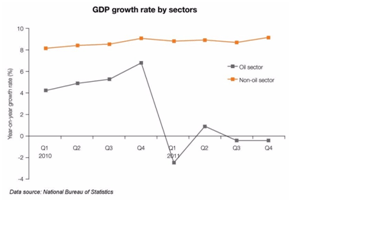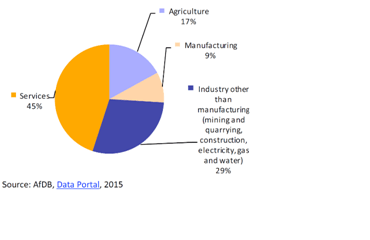Engineering -Facilities management- National Development
By
Engr.Dr.MKO Balogun
(mnse, MNIMECHe,CFM, FNIBM, FDMI, FIMC)
at The Installation Ceremony of Engr.Dr.Mrs. Christiana Ijagbemi as the 20th Chairman, NSE Akure Branch.
(mnse, MNIMECHe,CFM, FNIBM, FDMI, FIMC)
INTRODUCTORY NOTE
The President of Nigerian Society of Engineers, Engr. Adekunle Mokuolu, FNSE, our host, Engr. Dr. Mrs. Ijagbemi, MNSE all other protocols duly reserved. I am a produc of Akure, Aquinas College Akure, I am an Engineer, a Facilities Manager, a real estate practitioner, an Entrepreneur, a Business leader and national/African development enthusiast. My Speech therefore will try to combine some of htis to bring to the forth some of the things I wants us to focus on as Engineers in Nigeria. I have therefore chosen to speak on “The connection between engineering and facilities management and the link to national development, the role and place of Engineers.”
DEFINITION OF TERMS
Engineering
The branch of science and technology concerned with the design, building, and use of engines, machines, and structures. Also is the application of scientific knowledge to solving problems in the real world. While science (physics, chemistry, biology, etc.) allows us to gain an understanding of the World and the Universe.
Engineers
What They Do. Engineers apply the principles of science and mathematics to develop economical solutions to technical problems. Their work is the link between scientific discoveries and the commercial applications that meet societal and consumer needs.
National Development
National development is the ability of a county or countries to improve the social welfare of the people e.g. by providing social amenities like quality education, potable water, transportation infrastructure, medical care, etc.
Facility management
is a professional management discipline function which integrates people, place and process within the built environment with the purpose of improving the quality of life of people and the productivity of the core business and economy of the country.
STATEMENT OF REPORTS
UNITED NATIONS DECADE REPORT .
“National development is growth plus change. Change in turn is social and cultural as well as economic and qualitative as well as quantitative”.Broadly, development of the nation encapsulates such parameters as: (i) Development through a planned national economy, (ii) Increase in agricultural production through application of modern technical know-how,
REAL ESTATE .
In nominal terms, Real Estate Services in the second quarter of 2018 grew by 1.03%, lower by –5.14% pointsthan the growth rate reported for the same period in 2017 and higher by 9.41% points compared to thepreceding Quarter. Quarter-on-Quarter, the sector growth rate was 30.26%. The contribution to nominalGDP in Q2 2018 was 7.09%, lower than the 7.97% reported in corresponding quarter of 2017 but higherthan the 5.87% reported in the preceding quarter.
ROAD TRANSPORT DATA (Q2 2018) .
The Q2 2018 road transport data reflected that 2,608 road crashes occurred within the quarter under review. Speed violation is reported as the major cause of road crashes in Q2 and it accounted for 50.65% of the total road crashes reported. Tyre burst and dangerous driving followed closely as they both accounted for 8.59% and 8.40% of the total road crashes…..
NIGERIAN GROSS DOMESTIC PRODUCT REPORT (Q2 2018)
In the second quarter of 2018, Nigeria’s Gross Domestic Product (GDP) grew by 1.50% (year-on-year)inreal terms to N16.58trillion. Growth in Q2 2018 was 0.79% points higher when compared to the secondquarter of 2017 which recorded a growth of 0.72%, but –0.45% points slower than 1.95% recorded in thefirst quarter of 2018.
AIR TRANSPORTATION DATA (Q1 & Q2 2018)
The first two quarters of 2018 saw mixed performance in the various items that make up airport transportation in Nigeria. The total number of passengers who passed through Nigerian airports reached 3,845,853 in the first quarter of 2018 – a 33.51% year-on-year growth from the same quarter of 2017; and 3,657,555 in the second quarter of 2018 – a smaller year-on-year growth of 15.24% from the same quarter in 2017.
RAIL TRANSPORTATION DATA (Q2 2018)(Q1 & Q2 2018)
Nigerian Railway Corporation operates a network of 3,505 kilometres (2,178 mi) of single track lines 1,067 mm (3 ft 6 in) gauge, as well as 1,435 mm (4 ft 8 1⁄2 in) from Abuja to Kaduna. The rail transportation data for Q2 2018 reflected that a total of 730,289 passengers traveled via the rail system …
ENGINEERING CONTRIBUTION TO NATIONAL DEVELOPMENT AND GDP
1.Manufacturing – industry.
2.Construction – roads, bridges, infrastructure .
3.Mining & Extraction – Engineering component.
4.Real Estate – design, development/installation and services.
5.Agric – mechanisation and automation
6.Technology – IT etc
7.Medicine – Medical Engineering & Technology.
8.Power Generation & Distribution – Electrical Engineering.
9.Oil & Gas – Extraction, development of oil fields
10.Facilities Management – Facilities Engineering & Management.
UPDATES
Engineering Education & Development
- How does our engineering education in Nigeria prepare graduates to be able to contribute in all the above sectors of the economy?
- Have we measured the real Nigerian engineering contribution to GDP?
- What is the role of NSE & COREN in ensuring that The Nigerian Engineer plays a major role in National development for the benefit of the nation and for his own benefit.
At an event in Lagos in May this year, Mr. Babatunde Fashola, Hon. Minister of PWH asked the audience to raise hand if they have engineers who are looking for job, majority did and he accused us, engineers of not creating an economy to support the graduates coming out of the system, however, my take is are the graduates been prepared to take on the economy – are they ready to come of the university ready and prepared to take on the world? The answer is No!!!
When I graduated several years ago, I told colleagues that the quality of engineering education is received is not worth it, my university, like several others, never had a functional engineering lab that will allow students challenge their minds and be ready for the real world.
CHALLENGES AND WAY FORWARD
To fulfil the mandate of national economic development and connect engineering to the development, we need to identify some of the challenges as a nation that has led us to where we are. The Minister of Power, Works and Housing, Mr. Raji Fashola (SAN), recently lamented the poor infrastructural deficit in the country, saying that “the country only constructed about 28,980km out of the 193,200km total length of her road network in the last 55 years of its independence”. He has also been quoted as saying that the country has not carried any maintenance on of the bridges since they were constructed.
IDEAS TO THINK ABOUT
- The PPP Model for infrastructure development driven by Engineers – The Director-General, Infrastructure Concession Regulatory Commission (ICRC), Chidi Izuwah, while speaking at a forum of Engineers proposed the use of “Private capital and management expertise will help in this area as has happened in Malaysia, India and South Africa,” citing examples of the Apapa Port Concession and Airport concessions. This will get our engineers busy and safe the country huge sums of money.
- Linking education and industry – The Nigerian Society of Engineers should work with NOTAB and sure AfDB, World Bank and other multi-lateral agencies to create a scheme that connects industry with education through engineering hubs and centres piloted in some universities and polytechnics to support the development of ideas that will solve our national problems. Such as road construction and maintenance – our roads are washed away after small rains, what can we do differently during construction to ensure they last? medical equipment for rural hospitals where this no light; etc


